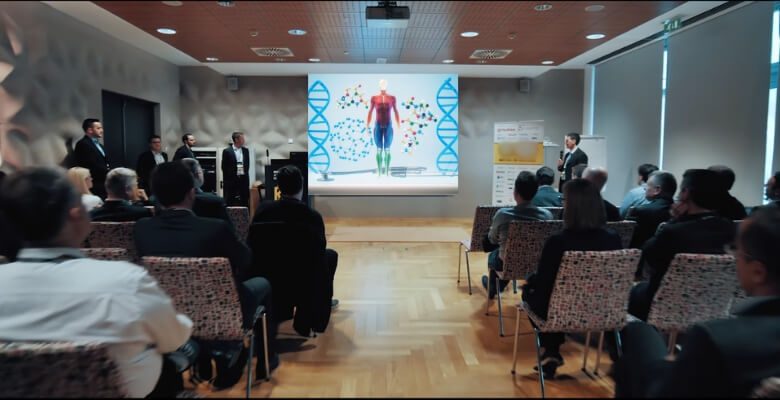The health care sector depends heavily on conferences for innovation and knowledge exchange. These events bring together leading researchers, scholars, and professionals to discuss innovative developments in the field. But are healthcare conferences open to the public?
Most healthcare conferences are generally not open to the public. Typically, these conferences are geared towards researchers, scholars, and professionals in the field, and they require registration and affiliation with relevant institutions and organizations to participate.
To learn more about the specific criteria for attending these specialized conferences and how they contribute to advancing medical science, continue reading our detailed exploration in the rest of the article.
What Happens at Healthcare Conferences?
At healthcare conferences, a variety of activities take place, all designed to promote learning, networking, and collaboration among professionals in the field. Participants can expect a rich agenda filled with keynote speeches, panel discussions, and interactive workshops. Keynote speeches often feature prominent figures in healthcare, sharing insights and innovations that can inspire attendees. These sessions set the tone for the conference, providing valuable perspectives on current trends and future challenges.
Additionally, panel discussions allow experts to engage in dialogues about pressing issues, offering diverse viewpoints on topics like healthcare policy, technology, and patient care. Interactive workshops are also a highlight, giving participants hands-on experience with new techniques, technologies, or methodologies. The good thing is, that an international health care conference will include different productive workshops on global health challenges, providing practical solutions that can be implemented locally.
Networking is another vital aspect of healthcare conferences. Attendees can meet peers, exchange ideas, and establish professional connections that can lead to future collaborations. Exhibitor booths showcasing the latest healthcare products and services are also common, allowing attendees to explore innovations that can improve their practice. Healthcare conferences are dynamic events where professionals come together to learn, share knowledge, and collaborate, aiming to improve healthcare delivery and outcomes for patients.
Are Healthcare Conferences Open to The Public?
The short answer is no. Most healthcare professionals, such as researchers, scholars, and practitioners, participate in these specialized events. To participate in these conferences, individuals are typically required to register and demonstrate their affiliation with a recognized institution or organization in the medical field.
Registration Process
Most healthcare conferences require advance registration, often done online through the conference’s official website. Here are key points to consider:
- Early Registration: Take advantage of discounted rates by registering early. This not only secures your spot but also ensures you get the best price.
Payment: Be prepared to pay a registration fee, which can vary widely depending on the conference’s prestige and location. Fees typically cover access to sessions, materials, and meals.
Credentials and Professional Status
The conference’s focus often dictates the necessary credentials or professional status:
- Professional Conferences: For events targeted at healthcare professionals, proof of credentials may be required, such as a medical license or membership in a professional organization.
Public Events: Some conferences are open to the public and may not require specific credentials, but registration is still essential for attendance management.
Topics and Sessions
Conferences often feature a variety of sessions, including workshops and keynote addresses. To maximize your experience:
- Session Relevance: Ensure that the topics align with your field or interests. In general, attendees of healthcare conferences should prioritize sessions that resonate with their professional goals.
Preparation: Familiarize yourself with session topics beforehand. Being well-prepared can deepen your engagement.
Networking Opportunities
Networking is a key benefit of attending healthcare conferences. To make the most of these opportunities:
- Bring Business Cards: Have business cards ready for easy contact information exchange.
Engagement: Be open to meeting new people and participating in discussions to facilitate valuable connections.
Continuing Education Credits
Many healthcare conferences offer continuing education (CE) credits. Here’s what to know:
- Accreditation: Check if the conference is accredited by relevant professional bodies to ensure the credits are valid for maintaining your licenses.
Documentation: Keep track of the requirements for obtaining CE credits, which may include attendance verification or evaluations.
Logistics and Accessibility
Planning logistics is crucial for a smooth conference experience:
- Travel and Accommodation: If attending from out of town, arrange your travel and lodging in advance. Many conferences provide discounted rates at nearby hotels.
Accessibility: Ensure the venue accommodates specific needs, as reputable conferences strive to be accessible for all attendees.
Follow-Up and Feedback
After the conference, following up with new contacts is beneficial. Here are ways to maintain these relationships:
- Thank You Notes: A brief thank-you message can reinforce connections and show appreciation.
Share Insights: Consider sharing your key takeaways with your network, which can facilitate ongoing discussions and engagement.
Participating in healthcare conferences involves careful preparation and awareness of specific requirements. By being aware of the registration process, recognizing credential needs, and actively engaging in networking, attendees can improve their professional growth and knowledge. Whether you are a healthcare professional, researcher, or an interested member of the public, these conferences offer valuable opportunities to learn, connect, and contribute to the healthcare community.
How to Find Public Healthcare Conferences?
Finding public healthcare conferences can be an enriching experience, allowing you to engage with industry professionals and gain valuable insights into health-related topics. In fact, exploring ways to find upcoming healthcare conferences can help them stay ahead in their roles. Here’s a step-by-step guide to help you locate these events effectively.
Online Research
Start your search online by using search engines and social media platforms. Websites like Eventbrite, Meetup, and even specific healthcare-focused sites can list upcoming conferences. You can search for phrases like “public healthcare conferences” or “health seminars open to the public.”
Professional Organizations
Many healthcare associations and organizations host conferences that are open to the public. Check the websites of relevant associations. They often provide event calendars that detail upcoming conferences, including those accessible to non-professionals.
University and Academic Institutions
Many universities conduct healthcare conferences and workshops. Visit the websites of universities with strong health programs; they may list upcoming events open to the public. Attending these can also provide a glimpse into the latest research and innovations in healthcare.
Networking
Connect with healthcare professionals through networking platforms like LinkedIn. They may know of conferences that are open to the public or may be attending themselves, allowing you to join them.
Email Newsletters and Alerts
Subscribe to newsletters from healthcare organizations, professional associations, or educational institutions. These newsletters often include information about upcoming conferences and events that welcome public participation.
By following these steps, you can discover a wealth of opportunities to engage with the healthcare community and expand your knowledge, making your search for public healthcare conferences both effective and rewarding.
Healthcare Conferences: Who Should Attend?
Healthcare conferences attract a diverse range of professionals dedicated to advancing the industry. From medical practitioners and researchers to policymakers and industry leaders, these gatherings encourage collaboration and innovation crucial for shaping the future of healthcare. Here’s explore who typically attends these significant events.
Medical Researchers
Researchers present new findings and discuss implications at healthcare conferences. They benefit from feedback and peer review that can refine ongoing studies. Conferences provide them with a platform to collaborate on multidisciplinary projects. Networking with peers is crucial for their professional development.
Healthcare Practitioners
Nurses, doctors, and other healthcare practitioners attend to learn about the latest treatments. They gain practical knowledge that can be directly applied to patient care. Such conferences often feature workshops or seminars tailored to their needs. This helps them stay current with the continuously evolving medical standards.
Healthcare Executives
Executives from hospitals and healthcare organizations attended to understand industry trends and strategic developments. Innovations could be implemented in their operations. Networking with technology providers and other executives is another key benefit for them. These conferences can influence future healthcare decisions.
Policy Makers
Government officials and policymakers stay informed about medical breakthroughs and evolving healthcare needs. Their participation bridges the regulatory gap. They gather insights necessary for crafting policies that support effective healthcare delivery. Engaging with professionals allows them to foresee and address sector challenges.
Academic Leaders
Deans and academic officials from medical schools are also frequent attendees. They seek information on the latest educational tools and research that can improve their curricula. These conferences serve as a pulse on healthcare education trends. They also explore partnerships for research and development.
Industry Vendors
Medical technology and pharmaceutical vendors use these conferences to showcase their products. They demonstrate how their offerings can improve patient outcomes and streamline operations. Engaging directly with healthcare professionals helps them tailor their products better. These interactions are vital for business growth.
Medical Students
Medical students and postgraduates attend for educational opportunities and to begin networking in their future fields. They gain invaluable exposure to the realities of medical professions. Conferences might provide them with mentors or open doors to research projects. It’s an early step in their professional journey.
Benefits of Attending the Healthcare Conference
Attending a healthcare conference can be an invaluable experience for medical professionals. During these events, you have the chance to learn about recent developments and network with industry leaders. Here’s exploring the various benefits that these conferences offer attendees.
- Latest Industry Insights: Healthcare conferences present the latest research and innovations in medicine. Attendees gain firsthand knowledge that can be crucial in advancing their practices.
- Networking Opportunities: These events connect you with peers and industry leaders from around the globe. Establishing new professional relationships can lead to collaborations and opportunities.
- Continuing Education: Many conferences offer workshops and sessions that count towards continuing education credits. This is essential for healthcare professionals to maintain their licenses.
- Exposure to New Technologies: Vendors often showcase the latest medical technologies at these events. Participants can see and sometimes test new tools before they hit the market.
- Professional Growth: Engaging with experts and participating in discussions can improve your expertise and decision-making skills. Such interactions can be significantly enriching.
- Policy Updates: Conferences often address changes in healthcare regulations and policies. Staying updated with this information ensures compliance and informs practice management.
- Presentation Skills: Presenting research findings or clinical cases can refine your public speaking and presentation skills. This exposure is crucial for personal and professional development.
- Motivation and Inspiration: Hearing about the successes and innovations in the field can reinvigorate your passion and commitment to healthcare. It’s a rejuvenating experience.
What Factors Are Considered to Attend the Healthcare Conference?
The decision to attend a healthcare conference involves careful consideration of several factors. These events provide insights into the latest trends and advancements in the field. Below are the key factors one should consider when planning to attend such a conference.
- Professional Development Opportunities: Healthcare conferences often feature workshops led by experts. These sessions can improve your skills and knowledge. Stay updated on the latest practices and technologies in your field.
- Networking with Peers: Conferences bring together like-minded professionals from various locations. This setting allows attendees to build relationships and exchange ideas. Networking can lead to collaborations and job opportunities.
- Access to Innovative Technologies: Exhibitors showcase new technologies and tools at these events. Exploring these can provide a competitive edge in your practice. It’s a chance to see demonstrations and ask questions directly.
- Continuing Education Credits: Many professionals attend conferences to earn continuing education credits. These are often required to maintain certifications. Check if the conference offers credits relevant to your specialty.
- Location and Logistics: The conference location can influence your decision to attend. Consider travel costs, accommodation, and the venue’s accessibility. Also, review the event’s schedule to ensure it aligns with your availability.
Frequently Asked Questions
Professional development and networking within the medical community are essential at healthcare conferences. Here are some frequently asked questions about these events to help clarify who can attend and what to expect.
Do I Need a Medical Background to Attend a Healthcare Conference?
Yes, most healthcare conferences require attendees to have a medical or academic background. This ensures that the discussions and content are relevant and appropriately advanced.
How Can I Find out If a Healthcare Conference Is Open to The Public?
To find out whether a healthcare conference is open to the public, check the event’s official website or contact the organizers directly for more information about attendance criteria.
What Types of Professionals Typically Attend Healthcare Conferences?
Healthcare conferences attract a diverse group of professionals such as physicians, nurses, researchers, healthcare executives, and policymakers, all looking to expand their knowledge and networks.
Are There Opportunities for Non-Healthcare Professionals at These Conferences?
Occasionally, healthcare conferences may have sessions that are relevant to non-medical professionals, such as healthcare IT professionals or administrative staff, but these are exceptions rather than the rule.
What Should I Prepare Before Attending a Healthcare Conference?
Prepare by reviewing the conference agenda, identifying sessions of interest, and bringing questions for networking opportunities. Also, arranging accommodations and registration in advance is crucial.
Last Words
The medical community depends on healthcare conferences for innovation, knowledge exchange, and professional growth. This is an excellent environment for learning, networking, and staying abreast of developments in medical science. Medical professionals benefit from materials and discussions that are tailored specifically for them.
While the question, “Are healthcare conferences open to the public?” often arises, it’s clear that these events are designed with a focused audience in mind. These conferences are particularly valuable for those in healthcare due to their exclusivity. These events provide insights, research sharing, and collaboration opportunities.
Attending such conferences can significantly impact one’s career and expertise in the healthcare sector. Gain new insights, earn continuing education credits, network with peers, and explore innovative technologies. The event inspires and revitalizes attendees, reinforcing their commitment to improving health outcomes.








